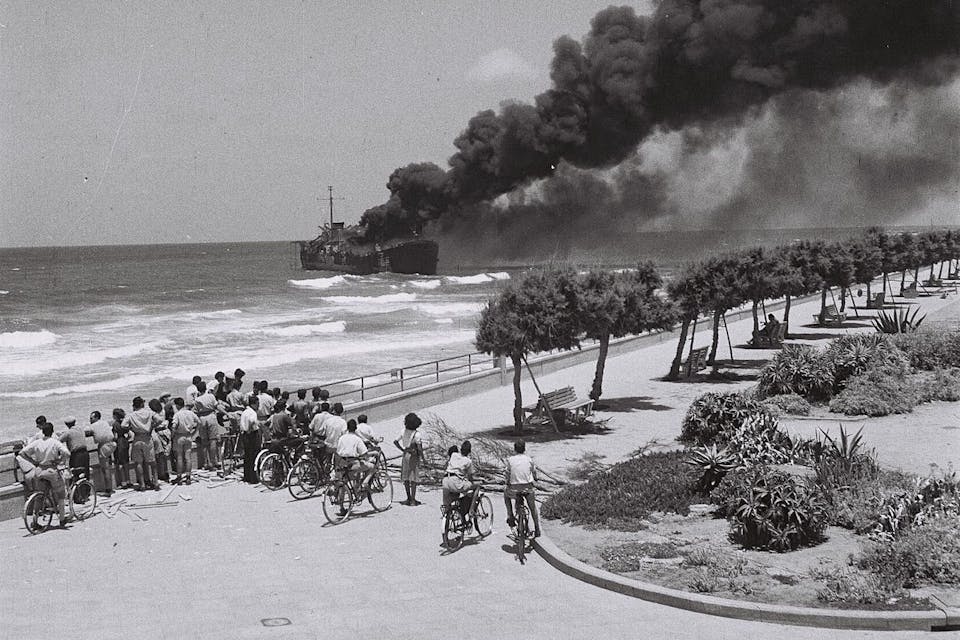
July 12, 2017
Benzion Netanyahu, the Altalena, and Me
Looking back at the founding moments of the state of Israel with the father of the current prime minister.
For most of the period between 9/11 and Israel’s 2005 disengagement from Gaza I lived in Israel, the last couple of years in Jerusalem. By a series of coincidences, and because Israel is a very small country, I found myself working for Benzion Netanyahu, translating some of his old Hebrew articles for an English-language collection eventually published as The Founding Fathers of Zionism. Benzion was a historian of Spanish Jewry who, having failed to secure tenure at Hebrew University, had taught for years in the U.S. and subsequently published a biography of the late-medieval Spanish rabbi and courtier Don Isaac Abravanel and a monumental history, The Origins of the Inquisition in Fifteenth-Century Spain.
While in the U.S., he and his wife also raised three sons: one, Jonathan, a military commander felled in the daring 1976 raid on Entebbe; another, Iddo, a radiologist by profession and a gifted playwright; and the third, Benjamin, to become the longest-serving prime minister of Israel. Benzion, in his nineties by the time I worked with him, didn’t use e-mail and didn’t own a photocopier, so once or twice, while his secretary went down the street to make copies, I had occasion to sit and chat with him. I don’t mean to suggest we had long soulful conversations, but what he did say he said with considerable authority—when he called my house once and announced himself, “Netanyahu here,” my wife said he had the scariest voice she’d ever heard—and a few remarks stick in my mind.
Naturally, because of the book and the five fathers of Zionism he saw fit to include in it—Leon Pinsker, Theodor Herzl, Max Nordau, Israel Zangwill, and Zeev Jabotinsky—we spoke occasionally about Zionism itself. In addition to his academic specialty of medieval Judaism, he was a keen student of Zionist politics, having been in his younger days an active member of Jabotinsky’s Revisionist movement and for a brief time Jabotinsky’s secretary in New York. That was in 1940; following Jabotinsky’s death later that same year, he had taken over the directorship of the movement’s American branch.